New Mars Forums
You are not logged in.
- Topics: Active | Unanswered
Announcement
#76 2017-02-22 09:40:33
- GW Johnson
- Member
- From: McGregor, Texas USA
- Registered: 2011-12-04
- Posts: 6,112
- Website
Re: New Red Dragon Mission?
Attitude control by chute? I don't think so, Elderflower. No ribbon chute drogue has ever been successfully deployed above Mach 2, and the ringsail chutes JPL has been using have never successfully deployed above Mach 2.5.
While the bantamweight probes have reached speeds that low at 15-25+ km altitudes where's there's time to deploy a chute and get a little deceleration from it, the big objects > ~ 1 ton will strike the surface before reaching speeds slow enough to deploy a chute. They come out of hypersonics at Mach 3 at altitudes down near 5 km altitude.
Attitude control has been by thrusters all during aerobraking, why change what's already working? Especially with something on the order of 10 sec to impact if you don't fire up landing rockets.
GW
Last edited by GW Johnson (2017-02-22 09:42:43)
GW Johnson
McGregor, Texas
"There is nothing as expensive as a dead crew, especially one dead from a bad management decision"
Offline
Like button can go here
#77 2017-02-22 11:27:50
- elderflower
- Member
- Registered: 2016-06-19
- Posts: 1,262
Re: New Red Dragon Mission?
Just a thought. That's how the Germans sometimes used to recover from a spin in their Starfighters.
Offline
Like button can go here
#78 2017-02-22 11:44:18
- rdierking
- Banned
- From: Temecula, CA
- Registered: 2017-02-03
- Posts: 14
Re: New Red Dragon Mission?
OK, I see what you mean with the positive attributes of the Dragon design and also the necessary landing scenario for large vehicles. But, would a landing from Mars orbit with power descent require such a substantial heat shield? Would a trade off between the energy and complexity of Mars orbit first vs. the difficulty of direct re-entry be worth it? And, of course how about getting back; direct to Earth vs. rendezvous in Mars orbit before the burn to Earth.
Again, doing some looking around on the forum, Mars Sample Return (MSR) is mentioned many times in many topics. It doesn't surprise me. MSR would be very important for science, testing and proving technology, and can't forget the psychology. After all, it's difficult to talk about sending humans when not one gram has ever been returned. Yeah, I know, there's the one-way trips.
I would like to start a new topic with just the subject Mars Sample Return Mission and just leave it open. NASA mission, SpaceX mission, In-Situ propellant production, whatever. It would be cool to see some summaries of previous suggestions and maybe some new ones. This would be an excellent subject for the Mars Society Annual Conference this year too.
But, before that, I would like your take on the use of propellants like LOX and RP-1 (LH2, Cryo Methane too) and their engines for Mars landing? Do you think these propellants and engines could be used for a long duration flight? Also, what would you think about using the same vehicles and collection methods proposed for MSR for Lunar Sample Return first? There are some really interesting possibilities for Lunar samples that where not collected during Apollo.
Offline
Like button can go here
#79 2017-02-22 12:16:12
- Oldfart1939
- Member
- Registered: 2016-11-26
- Posts: 2,488
Re: New Red Dragon Mission?
Although I'm not the expert that GW Johnson is on this, my extensive chemistry background comes into play on the topic regarding fuel combinations: RP-1 is difficult to use on long missions due to the deep space environment of extreme low temperature. RP-1 undergoes a viscosity increase below -7 Celsius, that makes it unusable. LH2 has it's own issues of being super cryogenic, low density requiring larger tanks, and lots of insulation. LCH4 is fairly compatible with the requirements for Mars landings, as are Monomethyl Hydrazine and Nitrogen Tetroxide ( MMH and NTO). They are not "problem liquids" but DO exhibit extreme toxicity. This couple has adequate Isp and exhaust velocity for deep space missions, as well.
Offline
Like button can go here
#80 2017-02-22 15:29:37
- rdierking
- Banned
- From: Temecula, CA
- Registered: 2017-02-03
- Posts: 14
Re: New Red Dragon Mission?
Thank you. So, LCH4 does sound good, and maybe there would not be a significant boil off of LOX during the journey to Mars.
I'm serious about the topic of Mars Sample Return (MSR) at the conference. I see there has been a call for papers for presentation at the conference. It's interesting that there are related subjects suggested, but MSR is not specifically listed. What an interesting topic which includes this subject btw. (Had to mention to stay on topic.) The History and Future of MSR. Would you go to that presentation? Invite SpaceX to speak about Red Dragon, etc.
Recently, I've began to accept that I may never see humans on Mars in my lifetime. But, not seeing the sample return mission is difficult to swallow. There have been so many delays, and now missions are being linked to get this done, like Mars 2020 and a JPL return mission that's just some artist sketches with no funding.
Maybe it will come to giving a colonist some plastic bags and a box with a return label to JPL. :-) Sorry, guess I'm being a bit of a smart A. But, how many lunar samples did we have before Apollo??? I just though we had become more technically capable of robotic missions and getting this done would be so valuable. Hey, maybe cp30 will jump out a hatch from a Red Dragon to get those samples!
Offline
Like button can go here
#81 2017-02-22 16:58:42
- Oldfart1939
- Member
- Registered: 2016-11-26
- Posts: 2,488
Re: New Red Dragon Mission?
We've just about reached the limits of what Robotics can really accomplish. We had a discussion at the Colorado Front Range Chapter of the Mars Society just this past Monday about the next scheduled rover; turns out the sample caching system for later sample return is the one causing the most headaches to JPL and it may delay the mission by one Hohmann Transfer Window, to 2022 instead of 2020. The concept of sample return done by Human missions is as probable as one done robotically. The Red Dragon will likely fly in 2020, not 2018, so that gives a bit more time for payload planning and design.
I consider the samples CAPABLE of being returned are of minimal scientific interest. We really need samples obtained by a core drilling system capable of going down at least a meter to obtain material not subjected to eons of UV exposure and Cosmic ray bombardment. But...that's just an old laboratory chemist doing the talking.
Last edited by Oldfart1939 (2017-02-22 17:00:04)
Offline
Like button can go here
#82 2017-02-22 18:55:31
- rdierking
- Banned
- From: Temecula, CA
- Registered: 2017-02-03
- Posts: 14
Re: New Red Dragon Mission?
Yes! OMG, it took me a second after I read your post Oldfart1939, because I couldn't believe that someone could actually agree with me. The original things I didn't like about the Red Dragon concept was the ideas of deploying a rover, picking up cached samples from 2020, not using In-Situ LOX and maybe LCH4, the small sample size, and short stay. There are others, and I still think SpaceX could do better.
SpaceX is a capable company, but developing a rover would take a lot of resources and time they need for other things. Just look at the development and operation of rovers by JPL. It takes a lot of engineering and testing under strict conditions.
JPL is probably freaked out about cross-contamination, proper sealing, storage, and delivery of the samples to the 'delivery ship' which doesn't even exist. I don't blame them. The idea of collecting rover samples and delivery to another vehicle for transport is not good. Yes, debatable, but fraught with peril. Things like rendezvous on Mars. If the 2020 (2022?) rover can't deliver the samples, their mission would still be OK because of the other science. But, what about a Red Dragon with no rover bringing the samples? Yeah, that would be disappointing. Would you want to design, build, and actually fly a system when you don't know how it's going to be finished? 2020 should fly without cache samples; don't hold it up for this.
One mission, and could be Red Dragon; drill in place, and I would suggest contacting companies that drill core samples for a living before contacting JPL. Then, figure out a pneumatic transfer system with carousel storage and purging between samples. Give this challenge to all the young-smart people at SpaceX that never sleep or take a day off and they could do it.
Offline
Like button can go here
#83 2017-02-22 21:22:26
- SpaceNut
- Administrator
- From: New Hampshire
- Registered: 2004-07-22
- Posts: 29,967
Re: New Red Dragon Mission?
Problem with rover cache is not being able to get the samples to the return ship as it did not land close enough.
This is one of the reasons for doing the red dragon landing in the first place is to prove out how accurate it can be in landing. This is also true for send a second or more landing to the same site getting them all to with a few hundred meters from each other....
We should also worry less able life contamination as we can never be sure even under the strictest of decontamination protocols.
Core drilling is lots different than just plain boring a hole and it does take a lot more mass to do so.
I also indicated that sending 1 off rovers with each mission was not needed as it only introduces delays and rising costs....
Offline
Like button can go here
#84 2017-02-22 22:12:15
- rdierking
- Banned
- From: Temecula, CA
- Registered: 2017-02-03
- Posts: 14
Re: New Red Dragon Mission?
Thanks again for your answers and clarification. There is so much information on this forum, and again I'm trying to learn how the forum operates. Remember, you all have been going at this for years and I'm a newbie. It took me almost a week to post, and just today I saw where to start a new topic.
Thank you for your patience if I went off topic and asked questions with obvious answers. I just learned more stuff by going back in this and related topics today.
For accuracy of landing, hasn't SpaceX demonstrated this by the recovery of the Falcon 9 first stage using grid fins and steerable engines? This is why I'm wondering why this same technology can't be used for a Mars landing. Not suggesting a Falcon 9 landing, but the mass would be pretty large, maybe a lot more mass than Dragon. But, the configuration of the landing craft (long tubular airframe with stable landing legs) would make it an excellent choice for a drilling rig and for the stable launch of an ascent rocket.
I'll be posting a new topic but I need a couple days to think it through. I hope you will join the conversation.
Offline
Like button can go here
#85 2017-02-22 23:31:07
- Oldfart1939
- Member
- Registered: 2016-11-26
- Posts: 2,488
Re: New Red Dragon Mission?
The accuracy in landing is actually based on the GPS system available to the computers, in addition to some carefully placed radar transponders at the landing site. On Mars, we don't have that system in place, but after a single Falcon is there equipped with a single transponder, we are in lots better shape for landing in close proximity.
Offline
Like button can go here
#86 2017-02-23 05:14:42
- elderflower
- Member
- Registered: 2016-06-19
- Posts: 1,262
Re: New Red Dragon Mission?
You will need plenty of spare fuel for your lander. You don't know exactly where you will be when you come out of the atmospheric entry plasma and can start to home on your beacon.
Offline
Like button can go here
#87 2017-02-23 05:18:09
- louis
- Member
- From: UK
- Registered: 2008-03-24
- Posts: 7,208
Re: New Red Dragon Mission?
I've always been keen on landing transponders as they are crucial to successful pre-landing of supplies and equipment. If we can land rovers succefully, we can land small transponders - probably dropping several in the target zone would make sense. That could probably be done in one mission.
The accuracy in landing is actually based on the GPS system available to the computers, in addition to some carefully placed radar transponders at the landing site. On Mars, we don't have that system in place, but after a single Falcon is there equipped with a single transponder, we are in lots better shape for landing in close proximity.
Let's Go to Mars...Google on: Fast Track to Mars blogspot.com
Offline
Like button can go here
#88 2017-02-23 08:35:57
- Oldfart1939
- Member
- Registered: 2016-11-26
- Posts: 2,488
Re: New Red Dragon Mission?
Prepositioning of landing transponders was an integral part of the original Mars Direct plan which was presented in the Mars Underground movie.
Offline
Like button can go here
#89 2017-02-23 09:15:52
- rdierking
- Banned
- From: Temecula, CA
- Registered: 2017-02-03
- Posts: 14
Re: New Red Dragon Mission?
I recall reading about the placement of transponders in The Case for Mars. So, if Red Dragon already has proven inertial navigation this would be a big plus. Still, was the plan for Red Dragon to land by 2020 or for 2020 to drive to Red Dragon? Maybe a little of both? Of course a problem is that good landing sites are usually not the most interesting locations for surface samples. Anyway, could 2020 provide the beacon to help guide Red Dragon to the landing site? Seems it would be favorable to have at least one external reference point. Additionally, it seems wait time would be critical for a Red Dragon sample return mission because of power. Sorry, but that's another problem I see with Red Dragon. What's the power source? The capsule doesn't work very well for the deployment of solar arrays. Maybe NASA would authorize RTG for a Red Dragon mission?
Perhaps the alternative should be that 2020 carries a transponder that would be placed at a particularly interesting site. Then, a future mission could be directed there to collect samples for return. So, no cache samples, just transponder placement.
Again, I think the Moon would be an excellent proving ground for sample collection and return. It doesn't have the narrow windows of opportunity and the relay of information is much better. But, I'm probably one of the most impatient people to get Mars Sample Return done.
Offline
Like button can go here
#90 2017-02-23 09:59:44
- Oldfart1939
- Member
- Registered: 2016-11-26
- Posts: 2,488
Re: New Red Dragon Mission?
One of the other possibilities for an unmanned mission would be establishment of a GPS satellite constellation around Mars. Now there's a good goal for the folks at NASA! Unlike you, I'm not really that keen on the sample return missions, as they seem to be very pricey for a minimal return on the investment. There is also an extremely high failure probability, which means risking too much of the NASA budget--putting too many eggs in one basket.
SpaceX's success is based on the combination of GPS satellites and ground based transponders, so that's the direction I would choose to follow with mission planning.
Offline
Like button can go here
#91 2017-02-23 19:54:34
- SpaceNut
- Administrator
- From: New Hampshire
- Registered: 2004-07-22
- Posts: 29,967
Re: New Red Dragon Mission?
As meantoned in the other topic we can do smaller versions of these as cube sat type workings to allow for more of them to be made to cover greater areas of mars orbitand surface....
As far as the RTG its unknow at what power levels we will require for the drilling operations to work at this time so the sizing of it may make it not workable for use.
Offline
Like button can go here
#92 2017-02-23 22:18:47
- SpaceNut
- Administrator
- From: New Hampshire
- Registered: 2004-07-22
- Posts: 29,967
Re: New Red Dragon Mission?
Offline
Like button can go here
#93 2019-10-24 18:58:16
- SpaceNut
- Administrator
- From: New Hampshire
- Registered: 2004-07-22
- Posts: 29,967
Re: New Red Dragon Mission?
Its funny how much ground we have covered with vehicles to get us to mars. Sure its no starship but its still capable of near 2 mT to the surface.
Offline
Like button can go here
#94 2019-11-01 21:04:49
- SpaceNut
- Administrator
- From: New Hampshire
- Registered: 2004-07-22
- Posts: 29,967
Re: New Red Dragon Mission?
Mission modes and types for mars
https://engineering.purdue.edu/AAE/rese … MTraj1.pdf
Offline
Like button can go here
#95 2019-11-10 20:47:21
- SpaceNut
- Administrator
- From: New Hampshire
- Registered: 2004-07-22
- Posts: 29,967
Re: New Red Dragon Mission?
Offline
Like button can go here
#96 2020-01-03 21:33:09
- SpaceNut
- Administrator
- From: New Hampshire
- Registered: 2004-07-22
- Posts: 29,967
Re: New Red Dragon Mission?
https://en.wikipedia.org/wiki/SpaceX_Red_Dragon
based on the money for a complete rocket launch it seems that Nasa was short sheeting Spacex for the complete system to be landed on mars.
https://www.newscientist.com/article/21 … -for-mars/
A mission that was to be more than a single design as the internals would hold a drilling rig and another was to be a sample return vehicle.
https://www.nas.nasa.gov/assets/pdf/sta … lities.pdf
https://www.lpi.usra.edu/meetings/marsc … f/4216.pdf
Red Dragon-MSL Hybrid landing architecture
capable of landing a 1000-kg payload on Mars7,200 kg entry mass,
120 kg of ballast mass would be ejected
1,900 kg of propellant for powered decent
5,180 kg System total landed mass4,200 kg Dry mass approximate
I got thinking about the inside of the dragon and the internal pressure vessel could be lessened or removed in its entirety as we do not need it for anything thats going to mars for cargo. This would up the mass for payload to mars. This would also include the door as well as its not needed either.

Nasa requirements lead to the falling out as cost continued to rise...
Feasibility of a Dragon-derived Mars lander for scientific and human-precursor investigations October 31, 2011
http://digitalvideo.8m.net/SpaceX/RedDr … 0-29-1.pdf
pg 10 glide profile comparison of the 3.6m dragon versus the msl 4.5 which shows that dragon will enter faster in the lower atmosphere and due to being heavier more braking force will be required by the retro rockets.
Nasa had issues with the legs for earth landings and want to still use the parachutes on mars...
Offline
Like button can go here
#97 2020-01-03 21:44:32
- SpaceNut
- Administrator
- From: New Hampshire
- Registered: 2004-07-22
- Posts: 29,967
Re: New Red Dragon Mission?
I am creating a new topic for using a different capsule to mars.
Lets call it Red Starliner.
Offline
Like button can go here
#98 2020-01-10 21:27:02
- SpaceNut
- Administrator
- From: New Hampshire
- Registered: 2004-07-22
- Posts: 29,967
Re: New Red Dragon Mission?
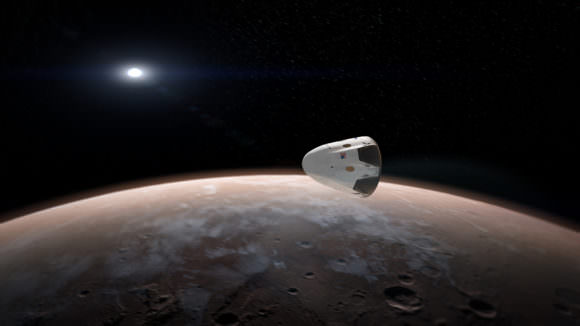
Have been in search of more reference numbers for the current capsule design of which itrs payload is 1 to 2 mT with the capsule having on orbit mass in the 8 to 10 mT. It could and would be capable of a one way landing with the payload and dry mass of the capsule in the 5mT neighborhood.
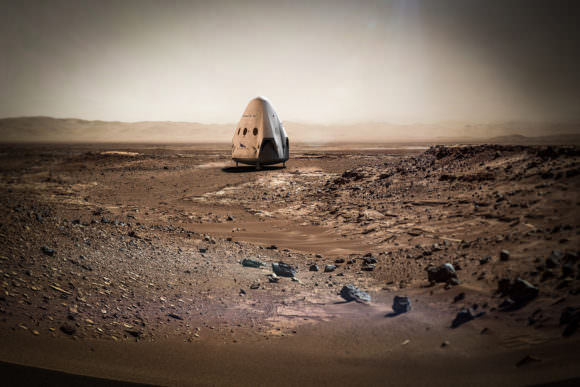

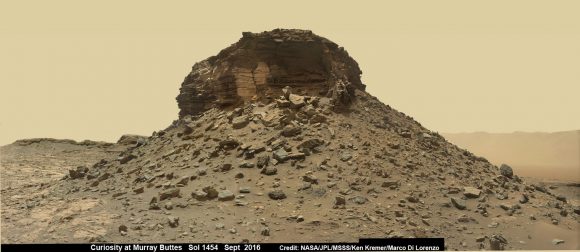
Red Dragon was to utilize supersonic retropropulsion as a main goal to propulsively land the heaviest payload ever on Mars – something 5-10 times the size to achieve a safe touchdown.
The science of a Red Dragon to mars could do as well
http://www.planetary.org/blogs/jason-da … -test.html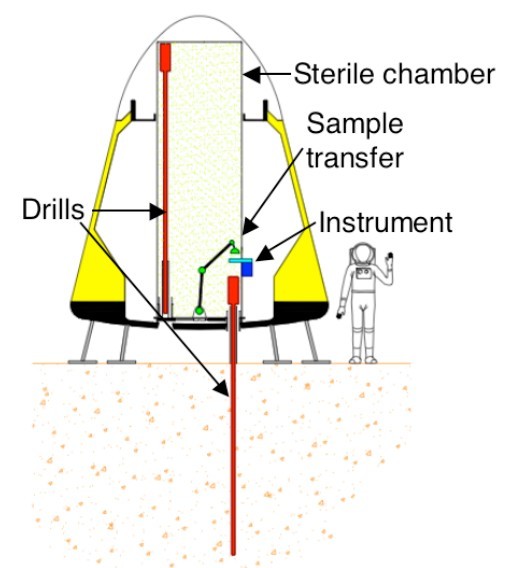
Sample return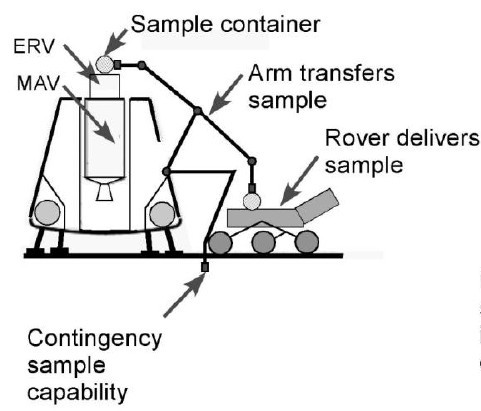
Conceptual design for the Red Dragon used to carry a Mars Ascent Vehicle (MAV) and an Earth Return Vehicle (ERV).
The initial delay to 2018 and then probable to be 2020 seemed to be nearly on.
Any mars mission with the crewed capsule to mars would need to wait until 2022 but Nasa is going to need to pay full price for one....
My way of thinking is that a Dragon with the super draco's of the crewed capsule has been able to achieve the 5x value to the surface.
So the next thing is we need to do a redesign but make use of what we have learned about how to land on mars.
That new design should make use of the different sizes of the cygnus, inflateables and other changes to make it a mars capable unit.
Offline
Like button can go here
#99 2020-01-11 18:34:09
- SpaceNut
- Administrator
- From: New Hampshire
- Registered: 2004-07-22
- Posts: 29,967
Re: New Red Dragon Mission?
That large 499 page document that is posted in a couple of topics had this table:
Falcon Heavy [241]:
- Payload to Low-Earth Orbit: 53,000 kg
- Payload to Trans-Martian Orbit: 13,200 kg
Lander (a 5m-diameter variant of Dragon) [194,240,242]:
- One lander is delivered by one Falcon Heavy launch
- Lander Mass: 14,400 kg
- Payload Mass: 2,500 kg
- Payload Volume: 25 m3 (pressurized)
- Recurring Cost: $300M per launch vehicle and lander
- Propulsive Entry, Descent, and Landing (EDL)
The payload transit to mars is the capsule plus fuel and payload so how does that math work for these numbers.....as the lander is a capsule plus payload.....
Offline
Like button can go here
#100 2021-04-25 15:46:18
- SpaceNut
- Administrator
- From: New Hampshire
- Registered: 2004-07-22
- Posts: 29,967
Re: New Red Dragon Mission?
https://en.wikipedia.org/wiki/SpaceX_Red_Dragon
https://en.wikipedia.org/wiki/SpaceX_Dragon#Red_Dragon
https://www.planetary.org/articles/2016 … xploration
Shows the work and numbers that GW as done
https://www.lpi.usra.edu/meetings/marsc … f/4216.pdf
https://www.spaceflightinsider.com/orga … x-capsule/
Variants of the capsule
https://en.wikipedia.org/wiki/SpaceX_Dragon_2
https://en.wikipedia.org/wiki/Human_mission_to_Mars
https://en.wikipedia.org/wiki/SpaceX_Mars_program
I guess my question is the crewed capsule capable of the same or simular feat as the Red Dragon ...
Offline
Like button can go here